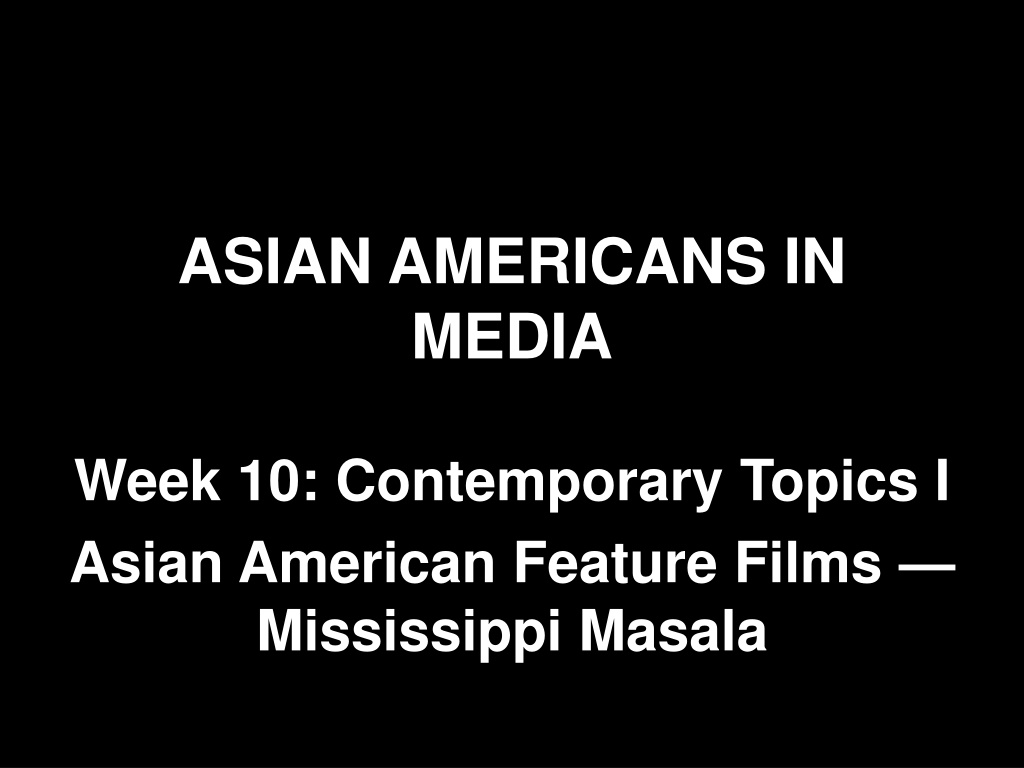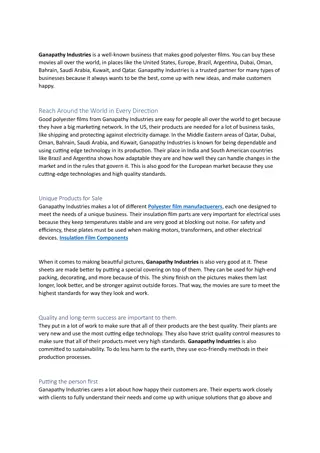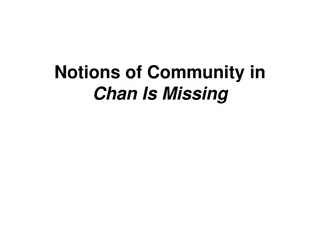Asian American Feature Films and Mira Nair's Mississippi Masala
Explore the realm of Asian American feature films with a focus on the acclaimed movie "Mississippi Masala" directed by Mira Nair. Delve into themes of South Asian diaspora, interracial relations, stereotypes, and realism portrayed in this cinematic work alongside insights into Nair's career and contributions to the film industry.
Uploaded on Sep 21, 2024 | 0 Views
Download Presentation

Please find below an Image/Link to download the presentation.
The content on the website is provided AS IS for your information and personal use only. It may not be sold, licensed, or shared on other websites without obtaining consent from the author. Download presentation by click this link. If you encounter any issues during the download, it is possible that the publisher has removed the file from their server.
E N D
Presentation Transcript
ASIAN AMERICANS IN MEDIA Week 10: Contemporary Topics I Asian American Feature Films Mississippi Masala
Key Terms: Asian American feature films South Asian diaspora Interracial relations Stereotype and realism
Opening / Credit Sequence: What does this sequence tell you about the film you are about to see?
Mississippi Masala (1991) Dir. Mira Nair Starring Denzel Washington, Sarita Choudhury, Roshan Seth, Sharmila Tagore, Charles S. Dutton, Joe Seneca
Mira Nair Born in India, 1957, educated in India and the U.S. Began her filmmaking career producing documentaries. Her first feature film is Salaam Bombay! Which won the Camera D or and Prix du
Public at the Cannes Film Festival in 1988, and was nominated for Best Foreign Language Film at the Academy Awards in 1989. Mississippi Masala is her second feature film. Other titles include Kama Sutra: A Tale of Love (1996), The Perez Family (1995), Monsoon Wedding (2001), and The Namesake (2006). Her most recent film is Queen of Katwe (2016), set in Uganda.
Nair is currently an adjunct professor in Film at Columbia University, which has a collaboration with her Maisha Film Lab. This collaboration offers opportunities for international students to work together and share their interests in film-making. Mississippi Masala represents the second phase of development in Asian American independent film, as discussed by Tajima, and characterized by institutionalization, pragmatism, and skill attainment.
Mississippi Masala and other Asian American feature films from the 1980s and early 90s, including Dim Sum (1985) dir. Wayne Wang, Living on Tokyo Time (1987) dir. Steven Okazaki, The Wedding Banquet (1993) dir. Ang Lee, Joy Luck Club (1994) dir. Wang, Picture Bride (1994) dir. Kayo Hatta were made with commercial release and mass audiences in mind. Nair, along with Lee, Wang, and other continues to make films today.
Discussion Questions: What is the representational politics of this film? For example, how are the Indians represented?
Discussion Questions: What is the representational politics of this film? For example, how are the Indians represented? What about its African American representation?
Discussion Questions: How does the representation of interracial romance in this film compare to other examples we studied (e.g. Broken Blossoms) in this class?
Discussion Questions: How does the representation of interracial romance in this film compare to other examples we studied (e.g. Broken Blossoms) in this class? What about other aspects of interracial relationship depicted in the film?
Comparative Analysis: Mississippi Masala and Voices in the Morning (1992) dir. Meena Nanji
Comparative Analysis: Mississippi Masala and Voices in the Morning (1992) dir. Meena Nanji What are the similarities and differences between these two media works (representation, formal language, issues)?
Comparative Analysis: Mississippi Masala and Voices in the Morning (1992) dir. Meena Nanji What are the similarities and differences between these two media works (representation, formal language, issues)? Compare the representation of South Asian women s experiences in these two works.
Film Festival Assignment: Shorts (program about parent/child relationships, immigrant experience) ASWANG NEXT DOOR (2017) Dir. Bernard Badion CURD (2019) Dir. Varun Chounal FIRST GENERATION (2017) Dir. Jeannie Nguyen ILY (2018) Dir. Jingyi Shao LIQUOR STORE BABIES (2018) Dir. So Yun Um INN (2017) Dir. Zion Chan SISTER (2018) Dir. Siqi Song SUNNY (2017) Dir. Sam Chung YASAMIN (2017) Dir. Julia Elihu Features GOING BACK TO CHINA (2019) Dir. Emily Ting LOVE BOAT: TAIWAN (2019) Dir. Valerie Soe Festival event: date / time / venue? Programming groups
Discussion Questions: Do you find any representation in the film stereotypical?
Discussion Questions: Do you find any representation in the film stereotypical? Discuss in relationship to the Mehta and Stam/Shohat readings?
Discussion Questions: Do you find any representation in the film stereotypical? Discuss in relationship to the Mehta and Stam/Shohat readings? What are the limitations to stereotype analysis / critique?























